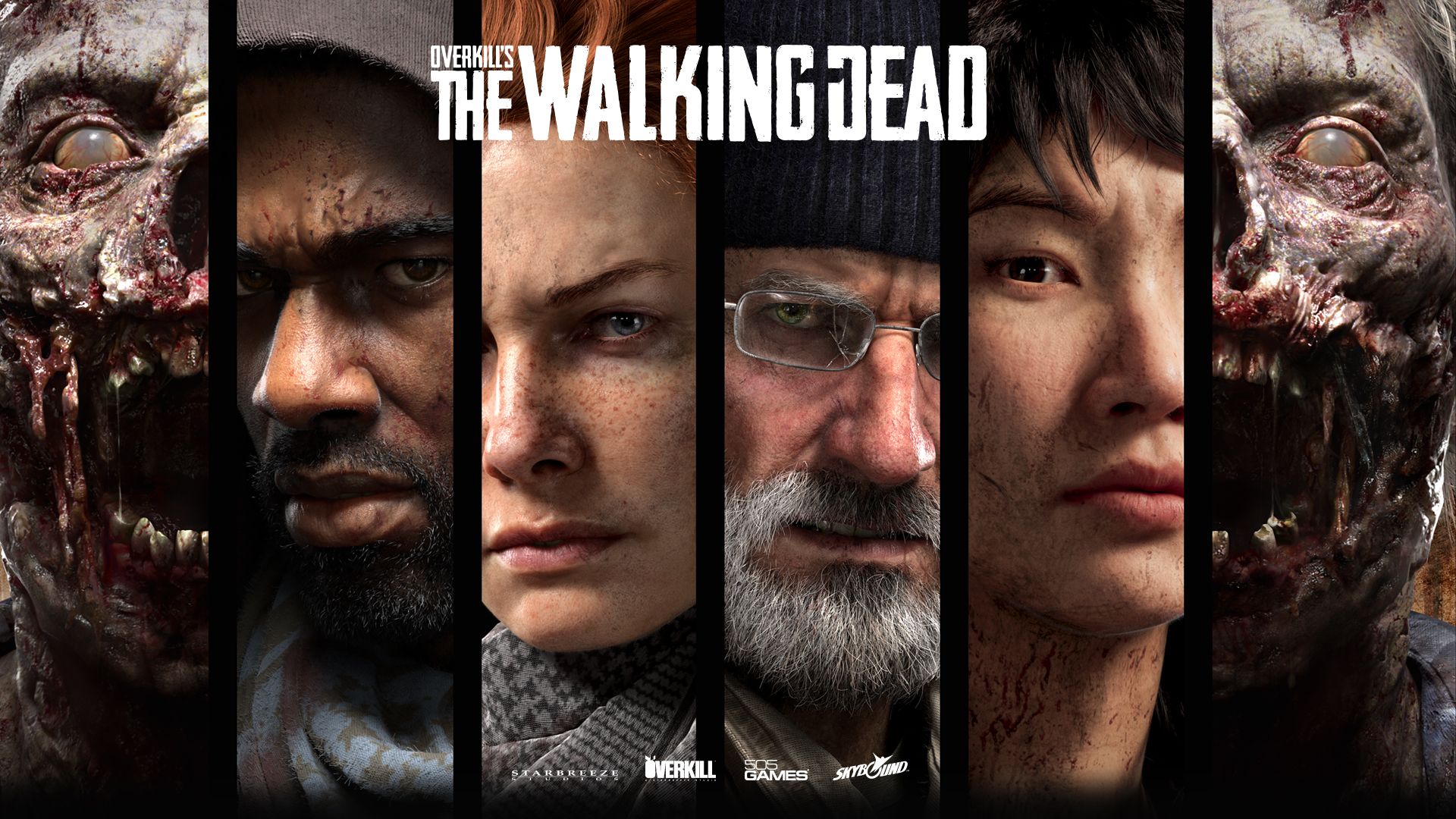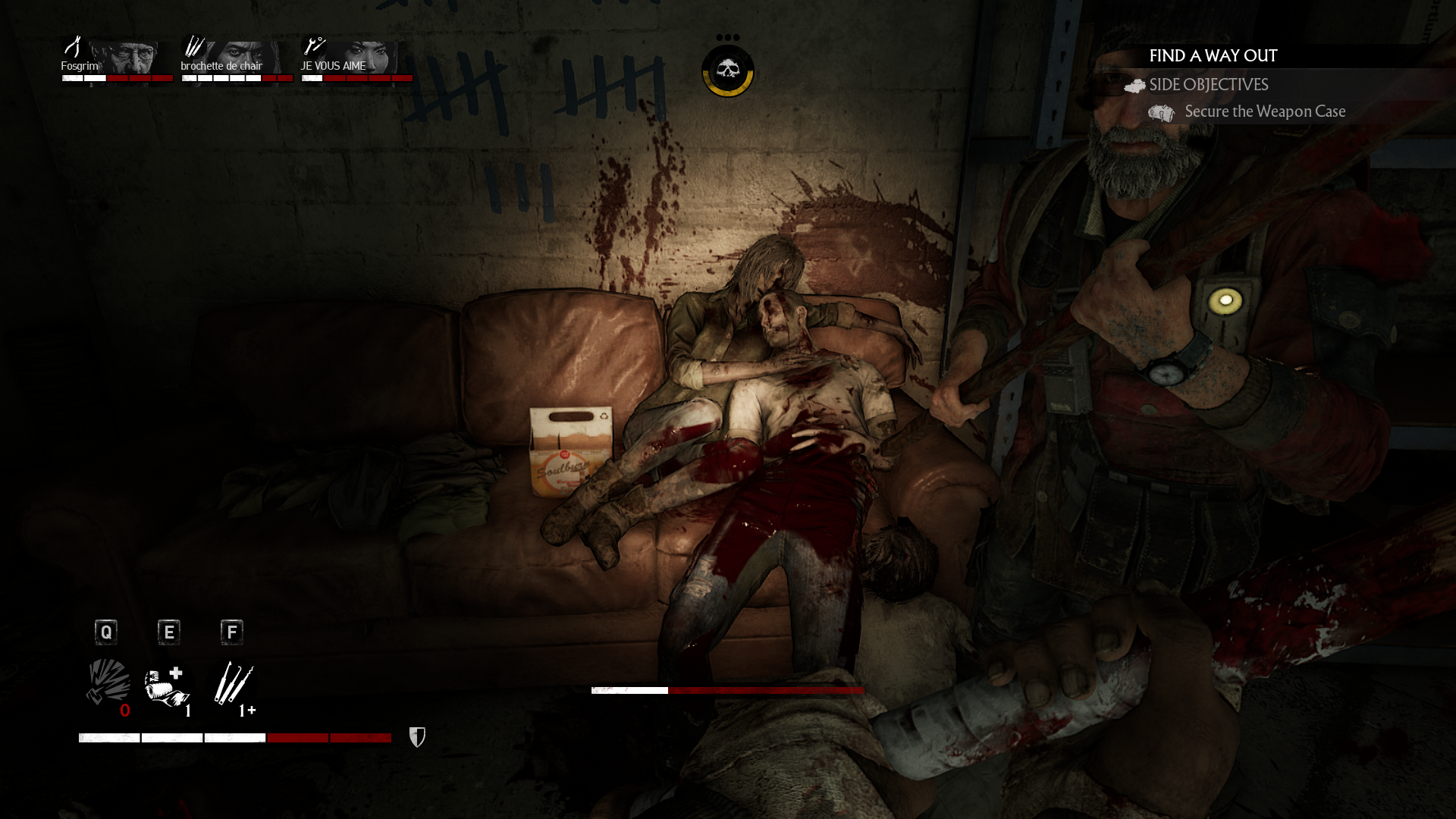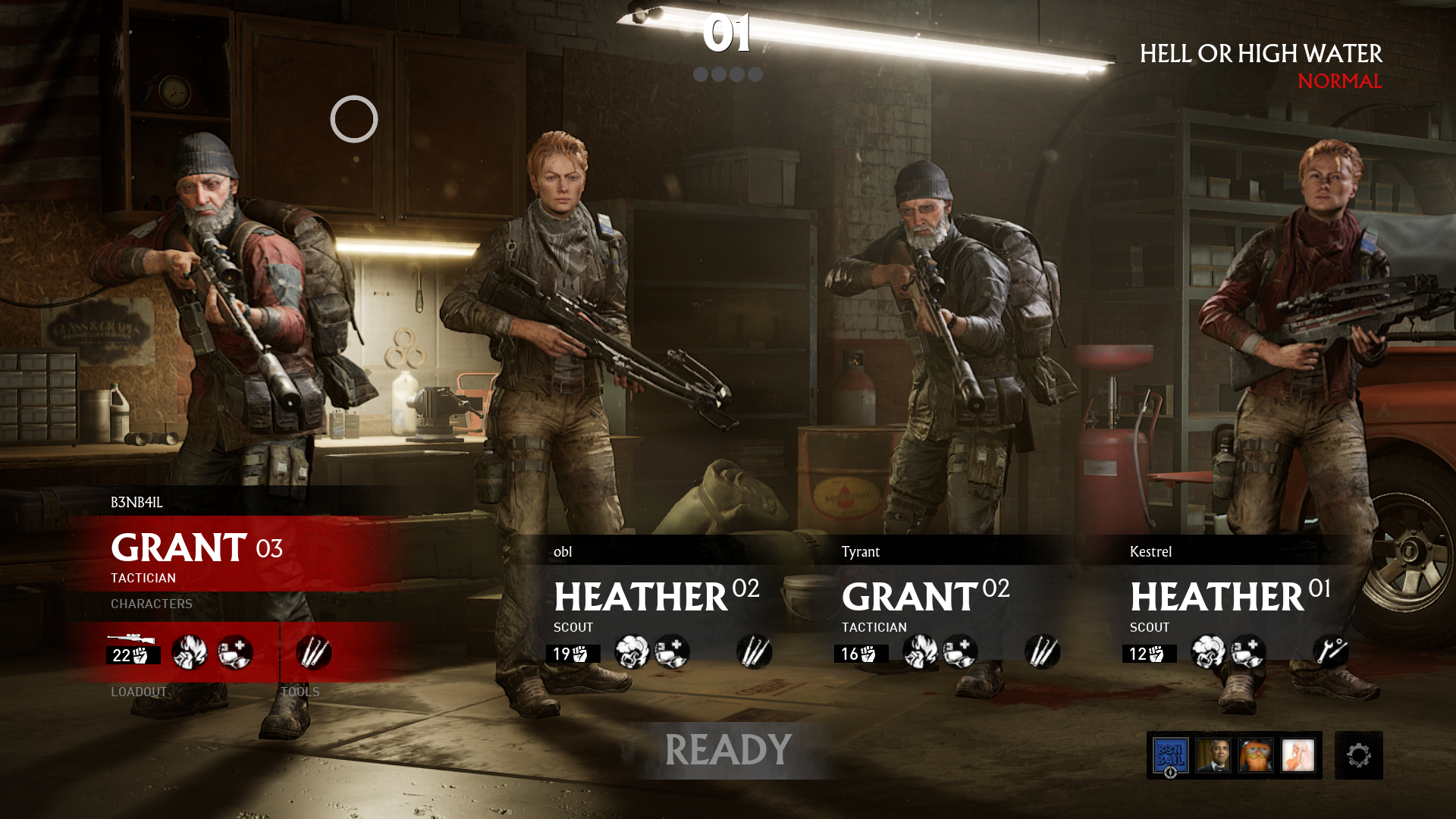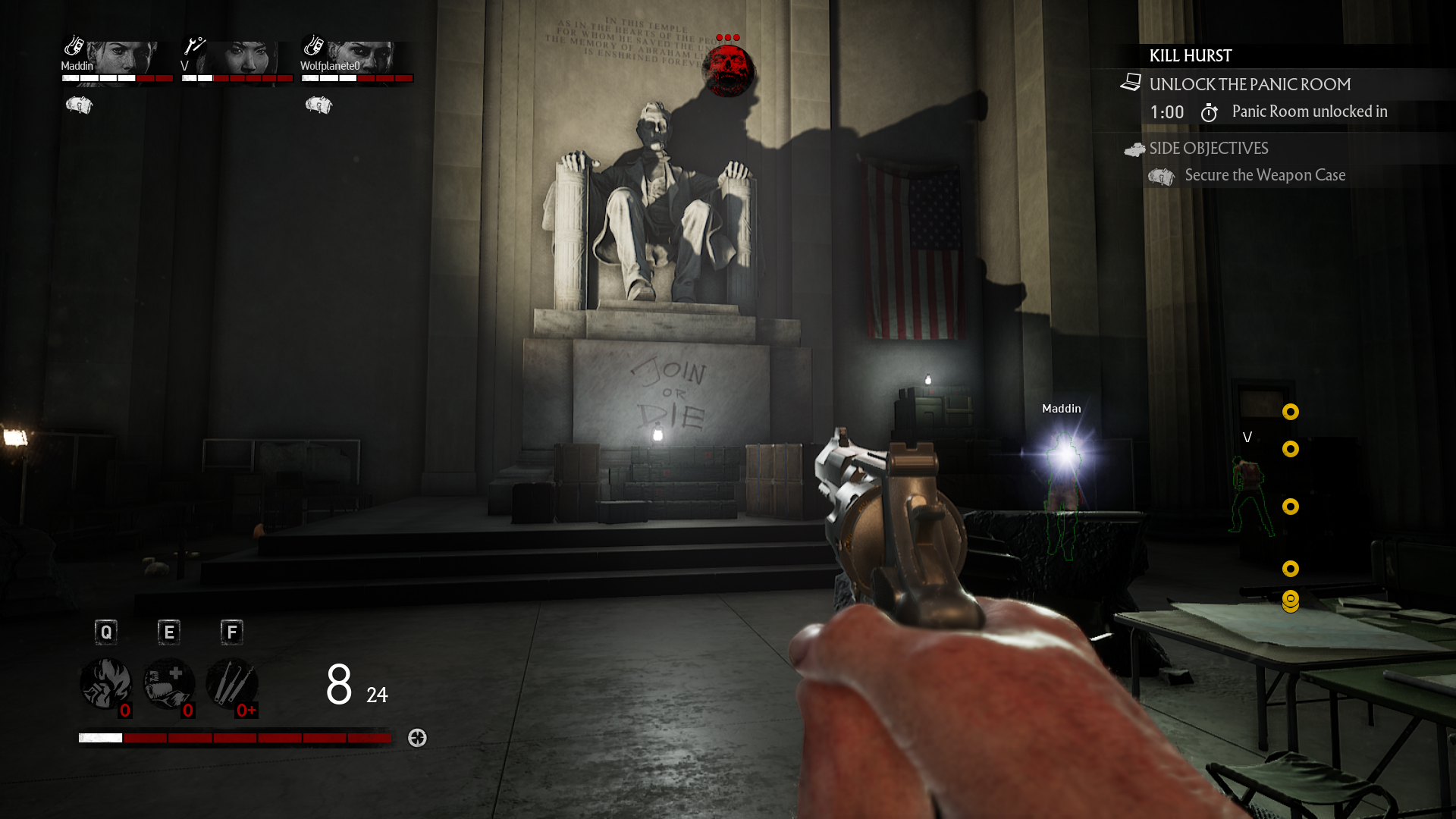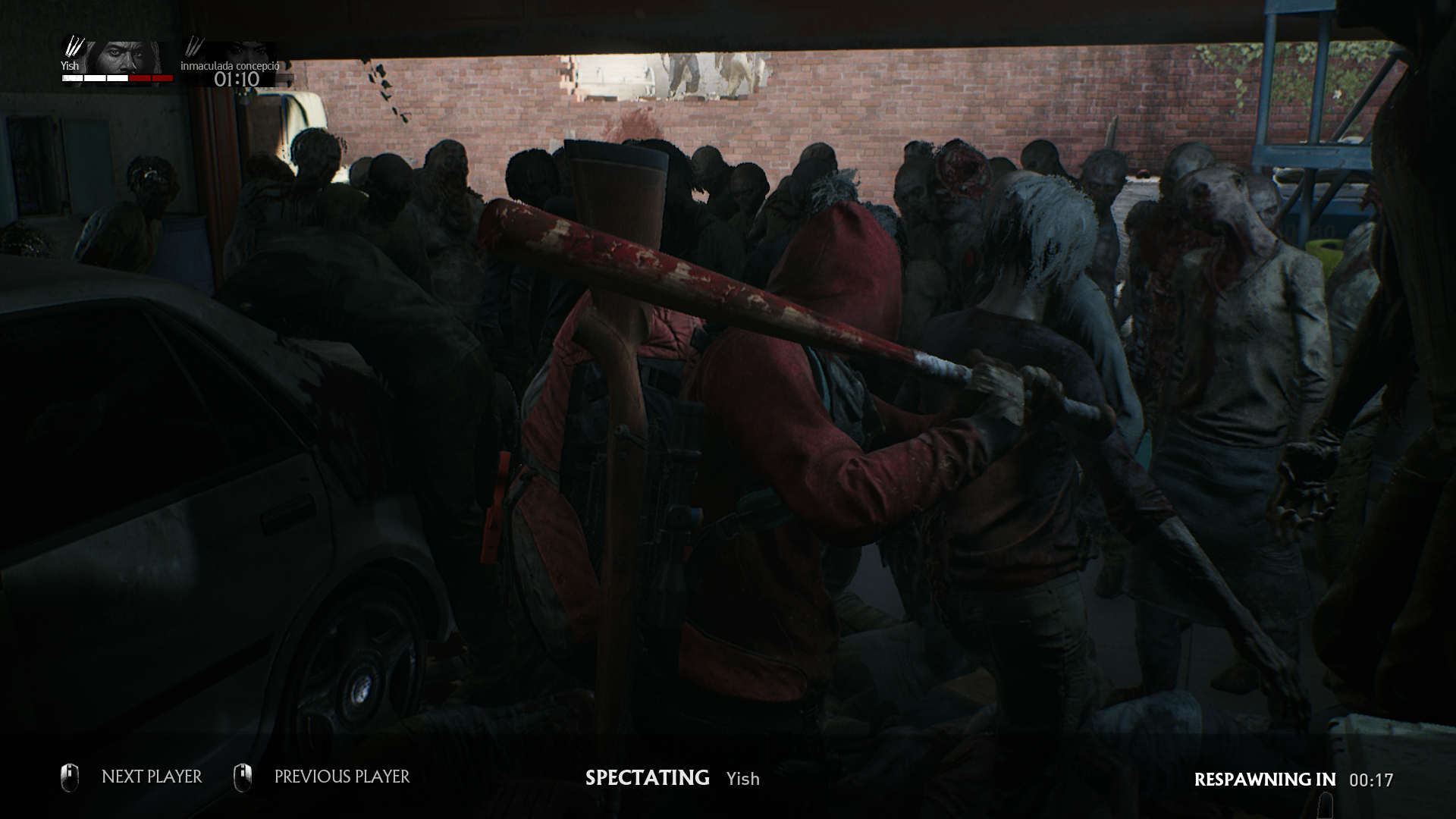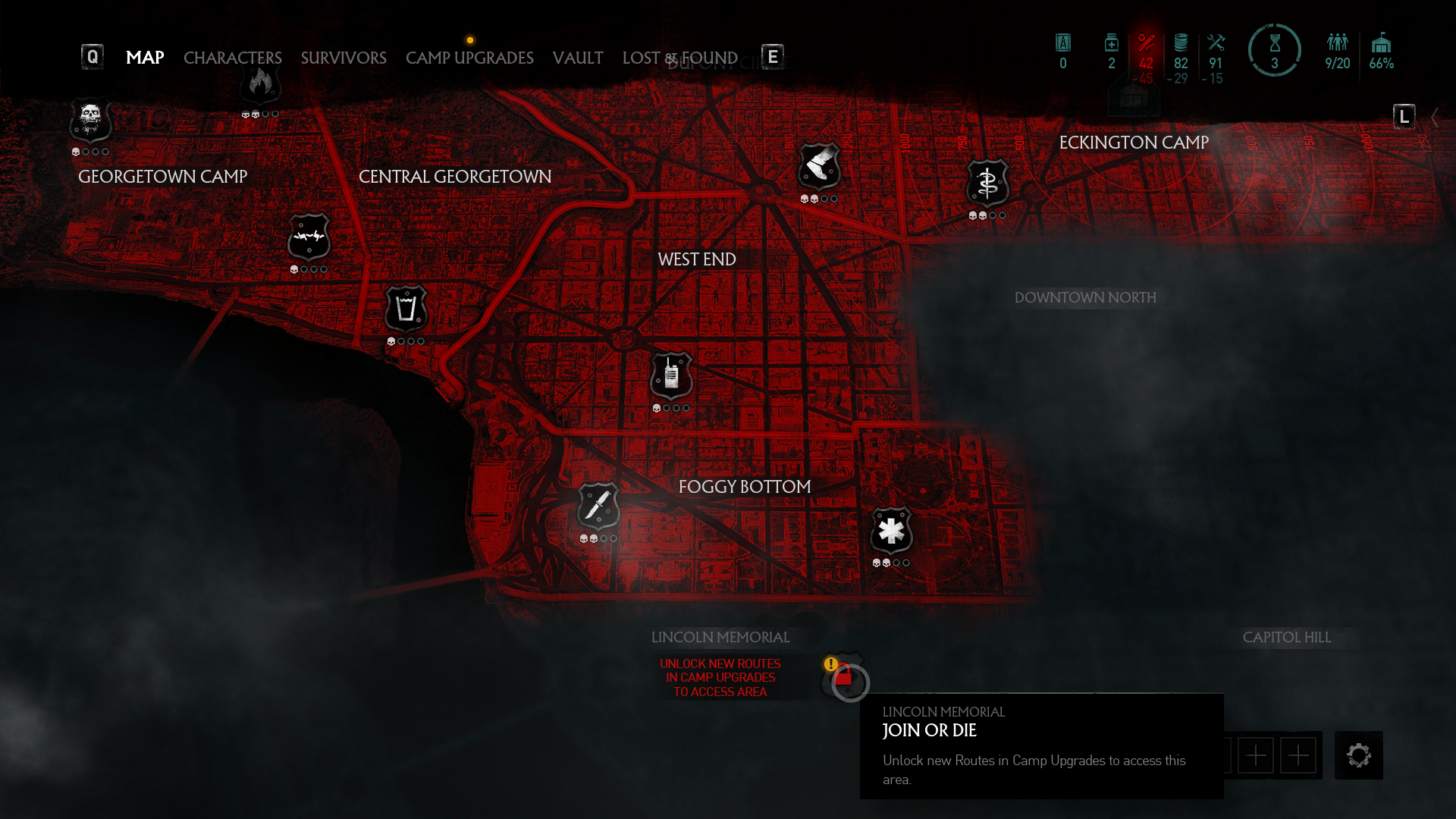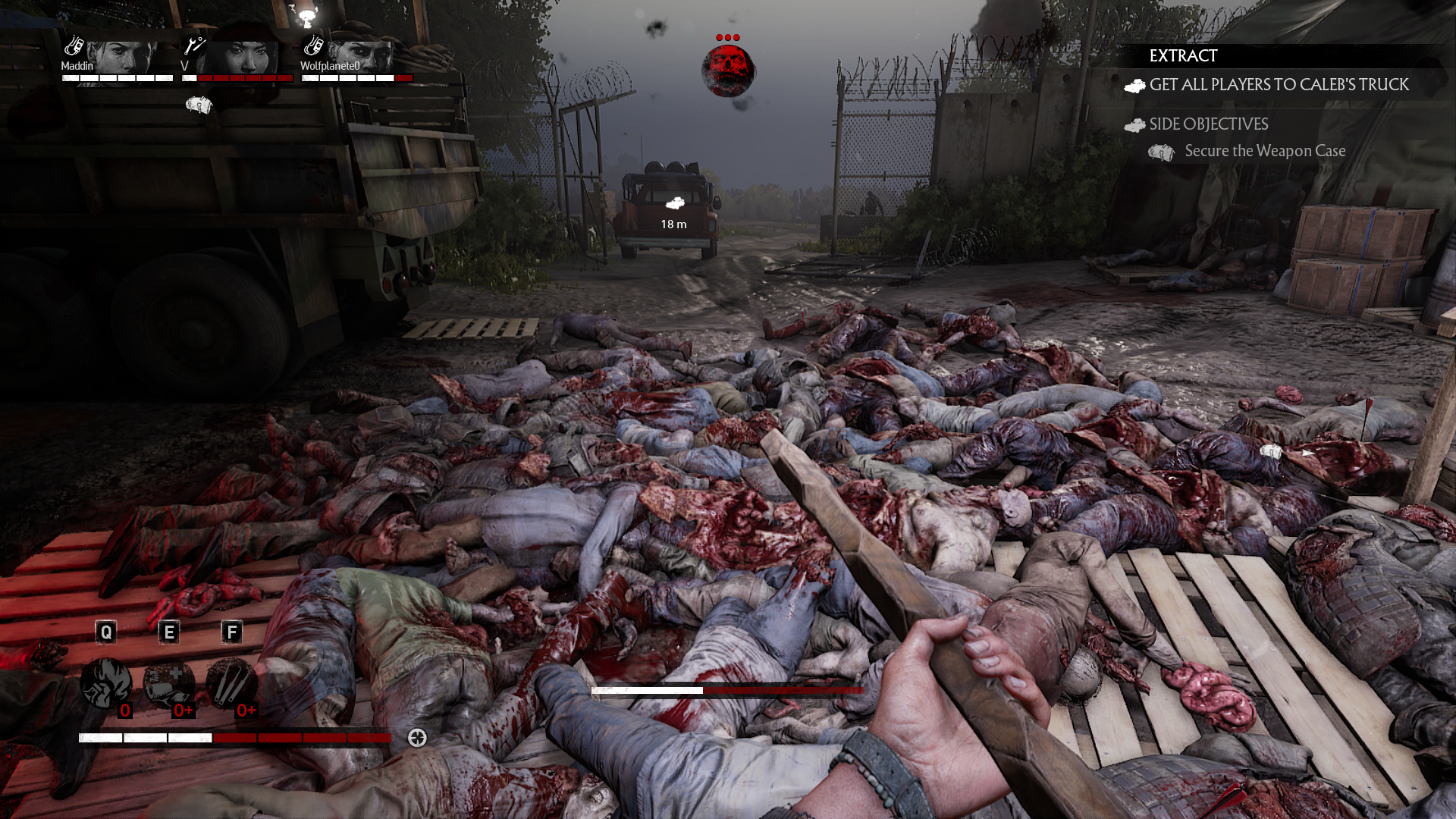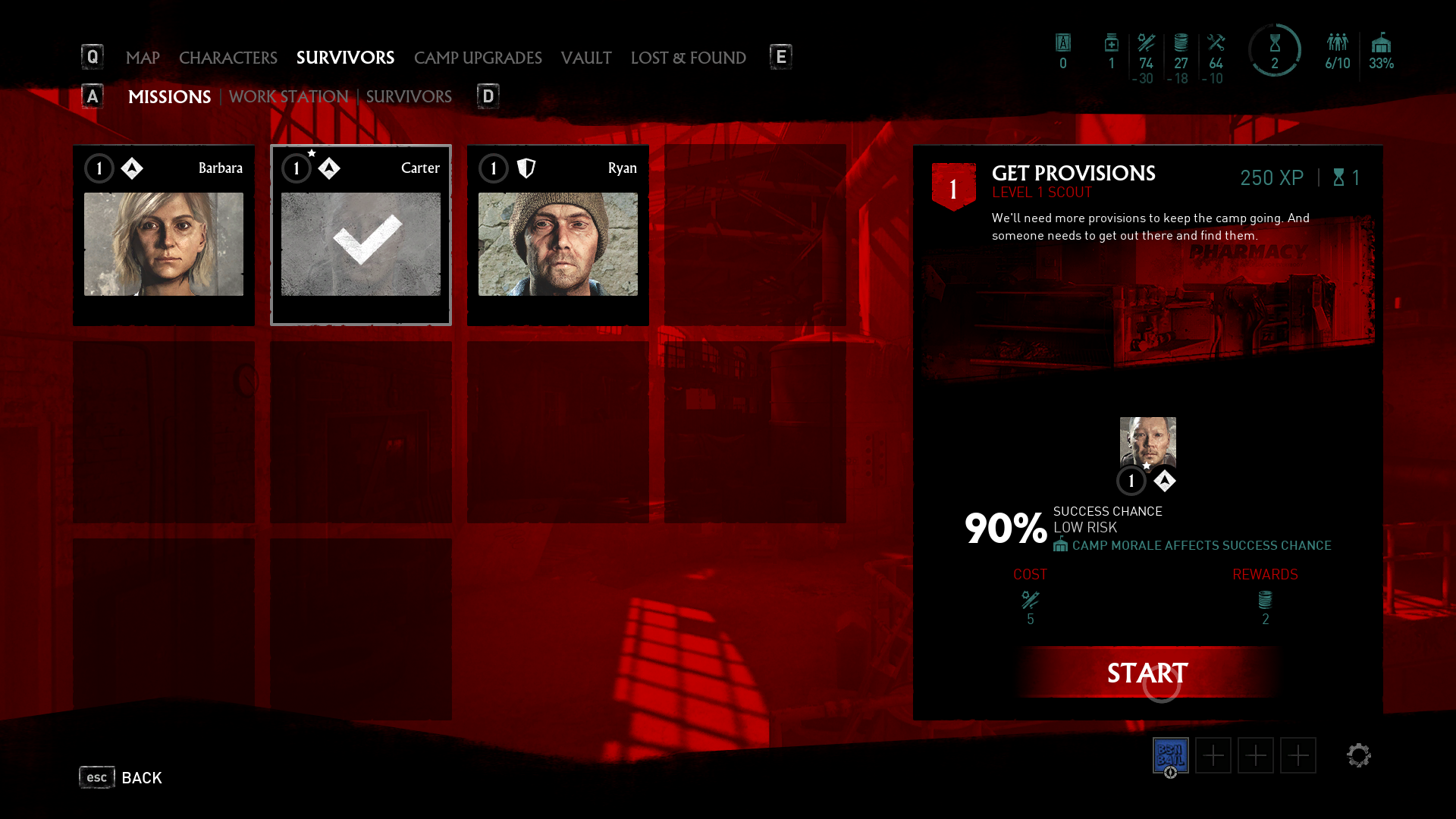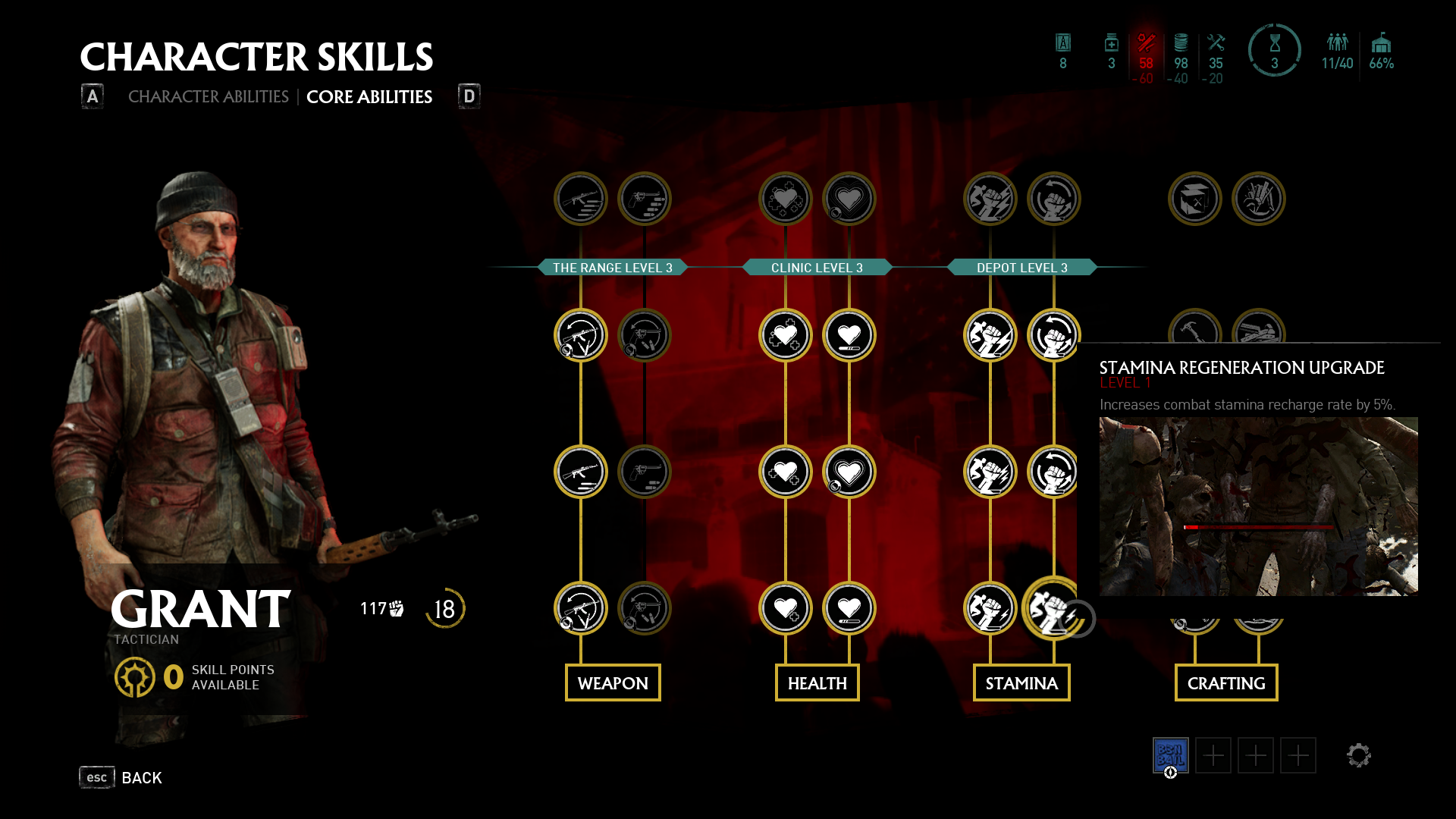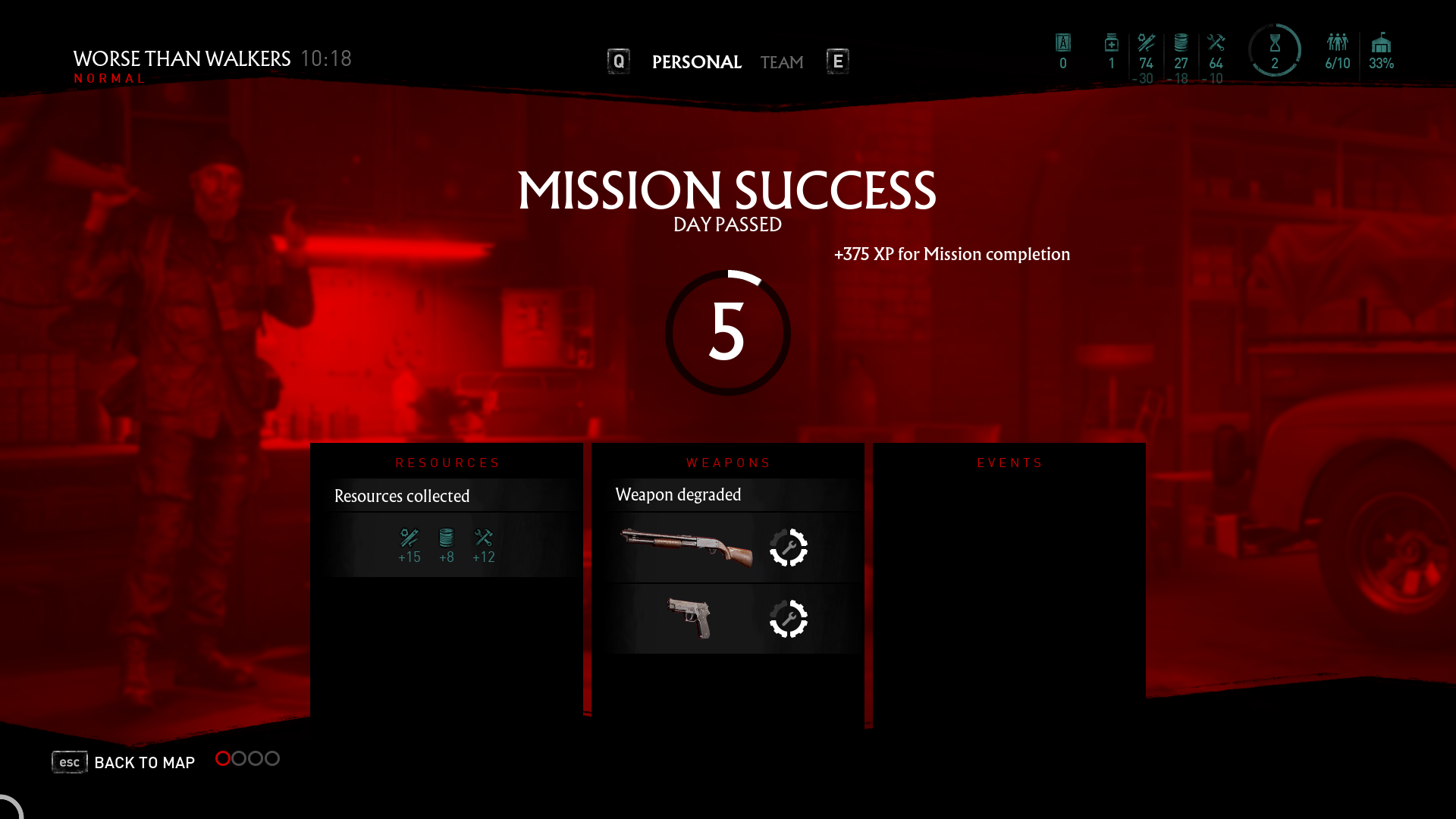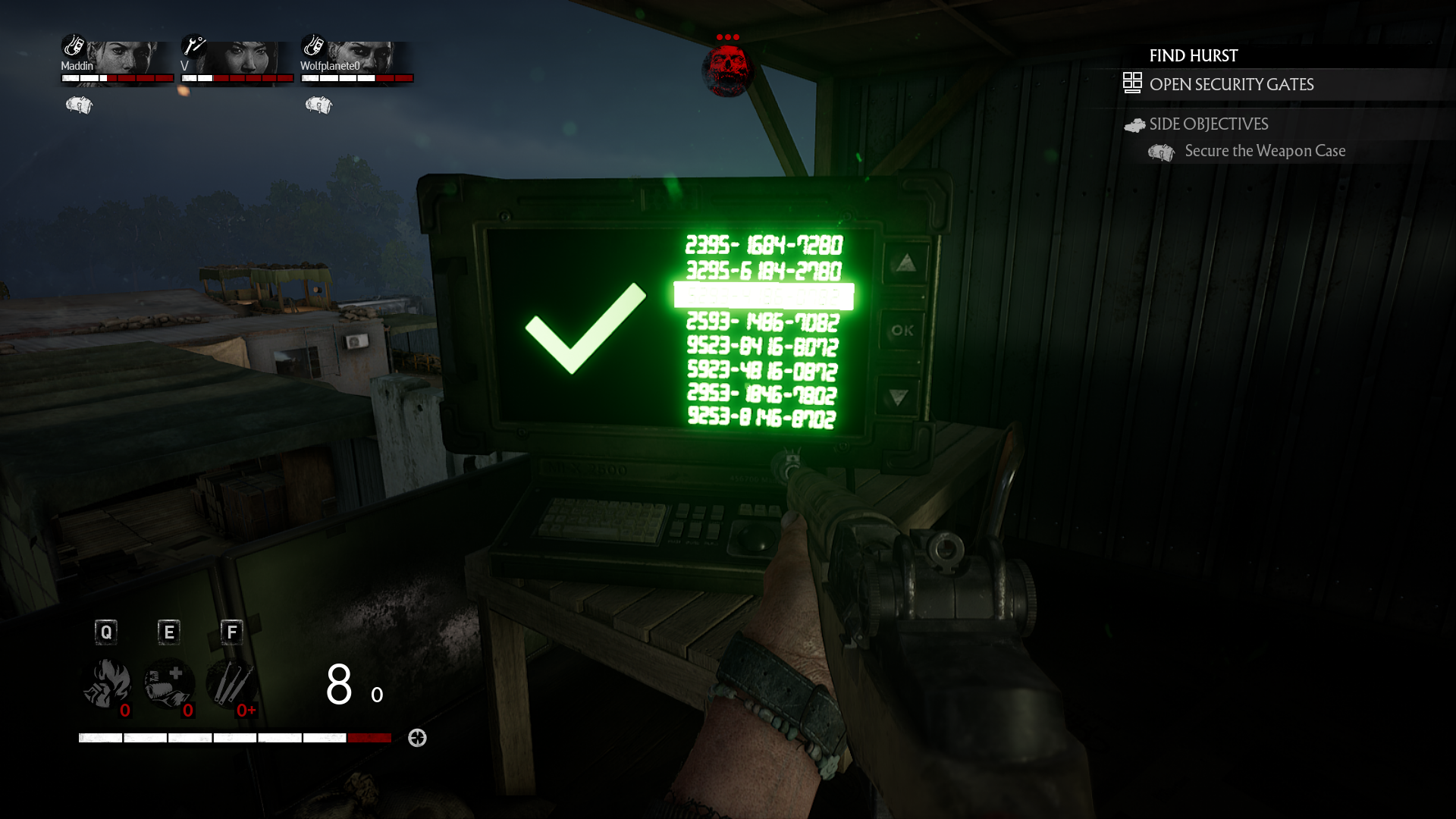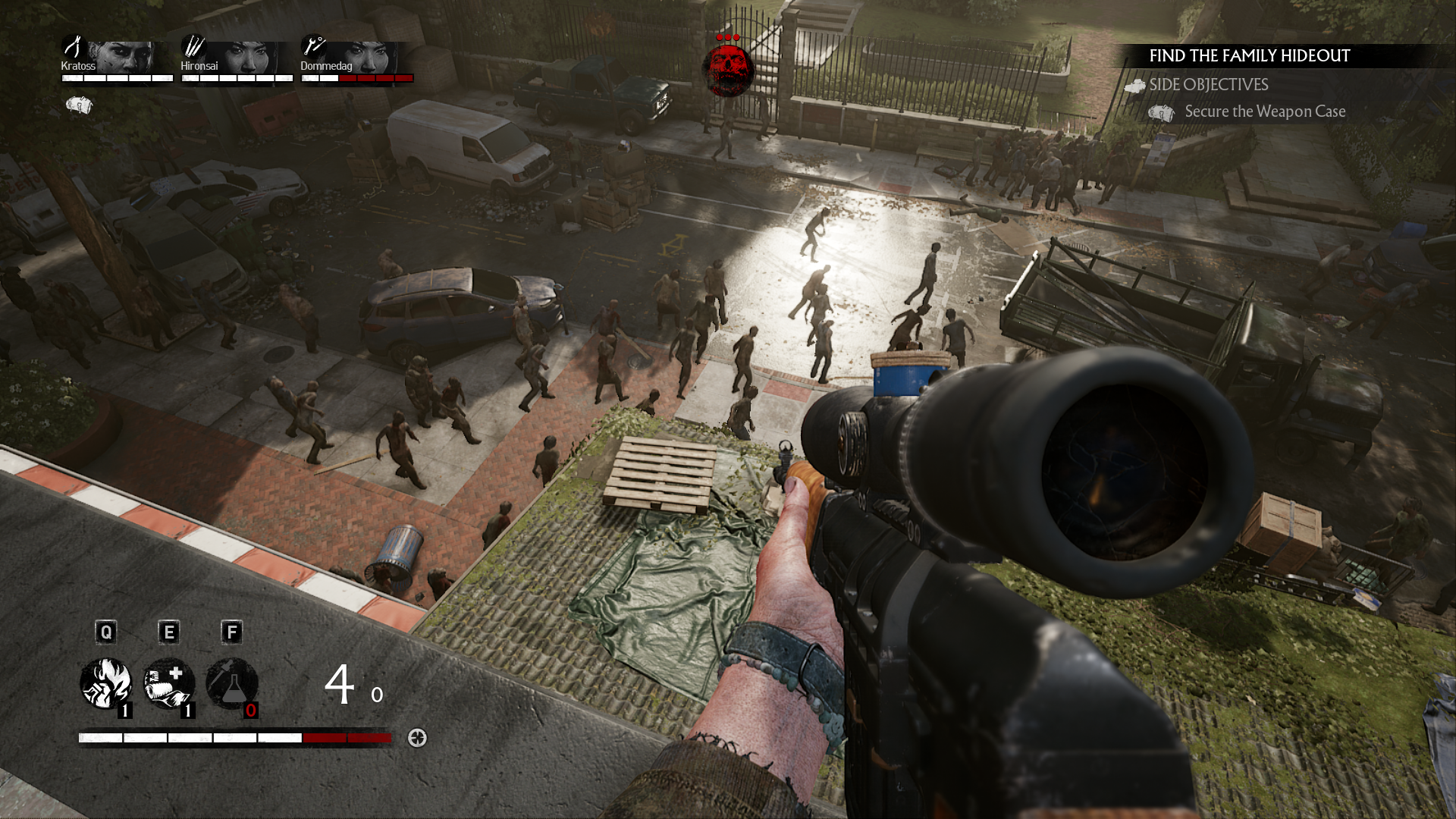The thought of being in a world overrun with zombies is rather unsettling. Maybe it’s the fact you stand a chance at being a delish meat feast for an undead stomach, or that you’ll no longer have an up-to-date social media timeline. Maybe it’s because horror games such as Left 4 Dead have taught us how frantic a zombie apocalypse could be, or how crowded a mall can get in Dead Rising. Overkill’s The Walking Dead doesn’t seem to portray the same level of fear you’d expect: instead, it leaves you growing frustrated with those that are still living, and treats zombies as an obstacle.
Set in the universe of The Walking Dead’s comic books, players take to the battered streets of Washington D.C while chasing a story of revenge, rivalry, and survival. Throughout the city, shining through the blood-soaked walls and trash littered roads are small rays of depressive human-beings' last moments captured, such as a dead couple hugging, messages scratched into walls, and contact numbers drawn onto dumpsters.
Zombies crafted in the art-style famed by The Walking Dead comic books wander the streets, attracted to noise and your tasty innards. Meanwhile, hostile survivors controlled by a dim-witted AI complicate matters in a frustrating way.
The story begins during Season One, with Season Two of the narrative arriving sometime in late November. As part of the Anderson Camp, you trawl through ten missions either alone or with other players as you battle against rival factions. Missions are unlocked one at a time, following a linear narrative for a story that doesn’t seem all that interesting. By the time I’d finished the last mission of the season, I realized that I felt no emotional connection to anything that had been happening.
There are four playable characters, each with their own skill trees, class type, playing style, and background story. Heather the scout, Aidan the tank, Grant the specialist, and Maya the support are the main characters, however, an additional two characters come into the fold later on. When in a lobby, players are able to choose the same characters, which while not a problem, just looks weird when you see three Aidans running around.
Each character has a set signature ability —Aidan, for example, has a flashbang— but players can choose what primary, secondary, melee, and craftable items they carry. Weapons come with different stats, so ensuring they’re maintained and modified nicely will increase your combat rating, allowing you to easily take on harder difficulties.
Stealth is heavily advised, as too much noise attracts the horde, a horrible crowd of zombies that come from nearly all directions to devour you. Noise traps, bear traps, and explosive traps are left lying around, not particularly easy to spot, but harder to spot if you’re rushing. Annoyingly, most missions require you to confront noisy, gun-happy survivors, so your noise level is going to ramp up regardless of how stealthy you are.
Speaking of stealth, it’s incredibly difficult to coordinate an approach when the game doesn’t feature voice-comms or even a command wheel. The most you can do outside of using your own voice system is using the chat box or hitting the "V" key to point out items of interest, or mark other humans or walkers.
So, you may be thinking that Overkill’s The Walking Dead might be better as a crazed shoot-em-up? No, it isn’t. Unless you’ve upgraded your skill tree, reloading is clunky and slow, sprinting feels like power walking, and changing between primary, secondary, and melee weapons is a chore. On top of that, when you attract the attention of the horde it can often become frustratingly overwhelming. A sea of undead swarm you, someone falls over and needs reviving, another gets cornered while spending five minutes pushing the walkers back, and the other hides. Occasionally someone runs ahead and leaves you to struggle because being an a**hole in the zombie apocalypse is apparently okay.
Teamwork is key; if someone's rushing along, the ones trying to keep it slow will suffer. Players need to work together when surrounded, otherwise they'll drown in the undead and fall from bullets. There are also moments in which they need to gather parts to fix methods of opening an escape, or solve a puzzle.
Missions are horribly linear, forcing you to follow a set path with a few shortcuts that can be opened by creating required craftable items if applied to the loadout. Lockpicks, chem kits, and more are what can be crafted, but come with choosing to sacrifice gathered supplies in that mission, or leaving them and taking the supplies to camp.
Allow me to just quickly talk about the story once again, because I’ve had people ask me about this while playing through the game. The cinematics we saw to tease the game prior to launch introducing the characters do not feature in the game. In fact, the characters backstories are essentially ignored, making way for a story told by animated stills featuring a voiceover while the level loads. It left me feeling incredibly detached, desiring a deeper story for the characters to be told instead of camp rivalry.
Outside of the story missions, you can take part in expeditions that require you to maybe assassinate someone or grab supplies. Other missions come as weekly missions and require you to revisit previous levels, but at an incredibly high "Overkill" difficulty.
Overkill’s The Walking Dead feels like it should have focused on facing zombies, because I seem to have a strong dislike towards having to face other survivors. They’re so armored up that it’s laughable to take them on, and the clumsy AI results in enemies standing around dumbfounded, as they then take cover in the wrong spots before successfully shooting you down with precise aim. The fact that survivors are more of a threat than zombies detracts from the zombie experience that I was looking forward to in the game.
There's also something pleasant about walking on a pool of dead zombie corpses.
It’s in these moments where Overkill’s The Walking Dead just feels like an advanced Payday 2 mod, from the same pointing system, the same grabbing and throwing bags into a truck system, and even the same type of weapon modification screen. Of course, this isn’t a terribly bad thing as the game will feel familiar to those who enjoyed Payday 2, but those that may be expecting a different experience won’t get one.
Dying is never meant to be unpleasant, but when you incur a time limit that goes up to four minutes (or more) after a few deaths, it becomes incredibly off-putting. No word of a lie, while waiting to respawn, I ended up doing some washing up in the kitchen and came back and still had time to check Twitter. A system with a set time would be more enticing as this current method doesn’t encourage you to stay alive, it just makes it harder to enjoy the game.
Another feature that feels weird is the safehouse. Payday 2 had a feature where you could wander your safehouse, look at your weapons, the map, etc. The same thing happens in Overkill’s The Walking Dead but you get the prize of seeing your expressionless survivors moping about. It’s also baffling that the only interact-able features in the camp are in one area, yet you can wander around the whole camp pointlessly with no aim. This could have all been done through main menus —just like the camp management that I’ll get into below— instead of being a mandatory stop off to get the next mission.
The condition of the camp is seen through the main menu in the top-right with medicine, scrap, provisions, and camp morale being a few available to view. You stock up supplies by scavenging and grabbing supplies in missions and completing said missions. You also end up finding survivors that can be assigned to sections of the camp providing you with perks such as increased bleed out times, for example. Survivors can also be assigned their own missions, and while you don’t join them, you do need to complete a mission of your own to make the day pass.
You’ll also be able to upgrade the camp at the cost of using supplies, allowing you to improve aspects of The Hub, Depot, The Range, Radio, and Clinic. Each one comes with their own skill tree that offers upgrades, new areas on the map, and missions for NPC survivors. Some character skill trees are also locked until you upgrade a specific camp area.
On top of that, you’ve got to maintain your weapons, looking after their condition by repairing them or dismantling weapons you don’t want for more parts. Characters have two skill trees unique to each character: the first is dedicated to Character Abilities, which allows you to upgrade weapon proficiency, class-specific skills, and the characters signature ability. The other skill tree are the Core Abilities, which are meant to upgrade your characters' health, stamina, crafting, and weapons.
Honestly, there’s far too much management that it becomes somewhat overwhelming. Let me just clarify how daunting it is: four characters, each with two unique skill trees, five camp skill tree sets, a cluttered vault with both weapons and mods to organize, assigning survivors to missions or camp sectors, and keeping camp supplies and morale up. I just want to go and shoot zombies.
As for leveling up, you can only level up who you’re playing as, so it’s best to choose one person and stick with them, then revisit older levels to grind lower-level characters. I learned this later on when I jumped into a later mission as Maya and realized I was incredibly weak. Failing missions does reward you with some points, but it’s always best to try and complete the missions...obviously.
I feel torn between liking and disliking Overkill’s The Walking Dead because I feel like the game could have been so much more fulfilling if some missions were just trying to scavenge for supplies around zombies. I also half expected an open-world format similar to State of Decay 2, but while I’m fine with there being mission levels, the loading times are often painful.
While it might not offer many levels for areas outside of the story levels, it looks like there’s going to be a good amount of future support for the title. You’re capable of taking on bounties such as “Kill 150 walkers” or “Collect four weapon mods” for extra rewards. Furthermore, there are lore items to find around the maps too, and bonus content to unlock.
Payday 2 also included a lot of DLC, and this game certainly has a lot of potential for DLC in the future. On top of that, Season Two of the game's story will be arriving at the end of this month, with more seasons planned to come.
So while the story left me feeling detached, and though I only started enjoying the combat after heavily upgrading my core stats and weapon abilities, I feel like Overkill’s The Walking Dead isn’t all that bad. Although, I felt it needs a stronger focus on surviving against zombies.
First impressions can often leave you feeling like it’s a slow, groggy mess with too much to manage and too many tough survivors working against you. But once you get deep enough into the game, only then does it start to feel more enjoyable, which sadly isn’t how it should be.
OVERKILL'S The Walking Dead
- Developer(s)
- Overkill Software
- Publisher(s)
- Starbreeze Studios
- Genre(s)
- First-Person Shooter

